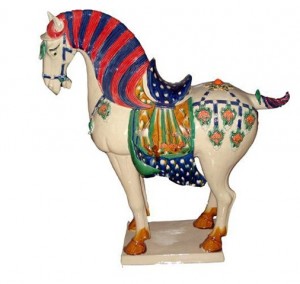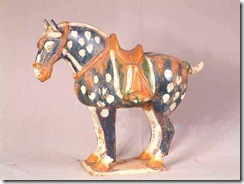Confucius said: “I can hear a court case as well as anyone, but there need be a world where there is no reason for a court.” This sums up the general attitude of China towards litigation or arbitration even up to the recent years. As late as 1990s, people did not know what arbitration was and litigation was something you only participated if you had committed a serious crime. After the opening up policy of the 90s, rapid economic developments took place. Foreign investments increased and participation in the Chinese domestic economy became more active. Because the judicial system was never transparent and was ruled by judges mostly without formal legal education, arbitration and arbitration law became a significant part of China’s economical interactions with the world.

Mediation and conciliation are still the preferred method of dispute resolution in China and is expressly encourage under Chinese law (Article 9 of Civil Procedure Law). Arbitrators and judges will often encourage parties to mediate or conciliate rather than litigate. And most people would consider a bad “guan xi” – relationship building, to arbitrate or litigate. It is considered losing face if they end up in a court or in an arbitration room. (This is perhaps due in part to the Chinese lack of trust in third parties?) The most established arbitration commission, CIETAC, also expressly encourages mediation or conciliation and estimates that more than half of the disputes they see are resolved by mediation. As China’s economy becomes more involved, passing Japan and becoming the second largest economy, its arbitration law is rapidly maturing. The central government currently remains relatively hands-off to arbitration reform and rarely interferes with the establishment of an arbitration commission and its established rules. The basis of arbitration laws in China, as well for mediation and conciliation, is the willingness of the parties to enter into arbitration.
No commission may arbitrate if the parties had not agreed to the arbitration, or if one party retracts their agreement to arbitration by consent. The court then must proceed with litigation. Therefore, parties only arbitrate if they have agreed to arbitration and mediation or conciliation had failed.
Arbitration is becoming a preferred method of dispute resolution in China primarily due to the Confucius influence of social harmony. Arbitration has the value of promoting social stability and order and thus social harmony. Arbitration is also very efficient and since arbitration decisions are final it is also effective in managing a transformation from a planned economy to the more agile socialist market economy. Arbitration also has the advantage of privacy, which is something that the Chinese people values but do not have. This may be another good reason why arbitration is becoming popular for both domestic and foreign business transactions. However, as a foreign investor or business partner wish to arbitrate thinking to avoid the somewhat partial and sometimes heavily influenced judicial system, beware the arbitration law of China has also been somewhat of a protectionist in Chinese domestic interests. This may be a reason why the central government has not been quick to interfere with the development and policy aspect of arbitration commissions, as they are perhaps hoping for more investment confidence that will help boast the Chinese economy in the coming years.
To understand China’s interest in its economic development conflicting with its other domestic interests, we must take a look at the development of Chinese arbitration laws and the arbitration system: Before 1949, there were no arbitration courts in China.
During the rule of Chinese emperors, there was no need for arbitration because mediation took care of most civil disputes. Local officials were only responsible for what we understand as criminal disputes.
In 1954, China funded its first arbitration commission to deal with foreigners – the Foreign Trade Arbitration Commission. This was renamed to CIETAC in the 1990s. However, CIETAC did not have the various contract laws to integrate into its arbitration process at the time to ensure a complete arbitration process. In the 1980s, China undertook to unify contract law from a dual track system. In the 1990s, China aggressively developed its laws dealing with both foreign and domestic contract disputes to continue its legal reform. In 1987, China acceded to the NY convention while making two reservations: that it will only enforce awards under the convention that are rendered in other contracting states, and the agreement only applies to China’s commercial interest. The purpose of this convention is to promote and stabilize international business transactions in the domestic market by promoting the enforcement of foreign arbitration disputes. Subsequent to the unification of Contract law, Chinese arbitration is jointly covered by the Civil Procedural Law of 1991, and eventually the Chinese Arbitration Law of 1994. During the mid 1990s, China saw an increase in governmental corruptions and a decline of international opinions of its business and legal integrity because of official interferences and unjust regulations. In 1995, to promote the Chinese economy and the arbitration system as a sound and just system, the Chinese government restructured its domestic arbitration system and required that the commission be independent of any administrative organizations to give confidence to the global community doing business in China. This led to a massive dismantling of the arbitration commissions having ties to the various local and national government.
In 2004, there was another special amendment to the Chinese arbitration law that barred judges from being arbitrators to show that China is serious in making its arbitration system world-class and impartial to governmental interference thus minimizing investor risk and boast confidence. Today, the Chinese arbitration system and many of its arbitration commissions are on a race to liberalism to attract foreign clients to help boast domestic market confidence in direct foreign investments in China. In this race to liberalism we see just a bit of give to national and domestic protectionism. Parties’ autonomy became the driving force in this digression: State is fearful of parties’ abilities to choose what rules apply and what forum to arbitrate, agreements involving arbitration with foreign laws, what languages to use. Foreign lawyers are now able to serve as legal agents to the proceedings, and China has allowed ad hoc arbitrations in a Bilateral Investment Treaty (ad hoc arbitration is not allowed otherwise). To further attract foreign investments and build investment confidence in the market should dispute arise, the Chinese arbitration laws now have many aspects that resemble international arbitration rules: arbitration agreements may be set in a separate document or in the contract itself; no formal writing is required to establish an arbitration clause; expression of intent is critical to the validity of arbitration clause; selective panel of arbitrators with higher educational requirements.
However, we still see domestic protectionism at work in many aspects of Chinese arbitration law as well as some of the case decisions. For example, in the Yonging [cite?] case where the international arbitration commission awarded judgment to a foreign party, the Chinese intermediate court exercised its power of interim measures protection against the foreign party and decided to refuse enforcement of awards to the foreign party. We also see that in choice of law, where there is a foreign related contract, parties although may choose the law governing the interpretation and enforcement of their agreements, but the tribunal is required to apply the law that has the closest connection to the law of the place where the contract is to be performed. We must also note that under Chinese arbitration law, the choice of law or arbitration proceedings and rulings may not violate Chinese law; and we see almost in all of the Chinese laws there is a reserved clause where the Chinese government retain the discretion to change the law in accordance to public policy. We must also note that to arbitrate in China, one is required to choose an arbitrator from a list of State approved arbitrators. It should also be noted that the arbitrator may attempt to mediate first and is allowed to access parties individually.
If mediation should fail, the arbitrator is then to proceed but the question we must ask is if the arbitrator can be impartial at this point. Also with the prevalent of “guan xi” = relationship building and face saving, there is no telling if these arbitrators are “approved” based on merits or on their connections. With a lack of transparency, there is no system of check and balance to protect one’s interest against the Chinese domestic interest. There is also no right to discovery therefore no truth guarding tool such as testifying under oath, cross-examinations, etc. There is also the problem of local protectionism. While the central government may be well intended to encourage fair dealing with foreign parties, the local government may choose to protect their own interest by not enforcing judgments or interfering with arbitration procedures. (State control is not absolute after all?) Another problem with arbitration to the Chinese legal structure is that it does not encourage legal reforms. With everything private, it is impossible to tell what legal procedure and substantive legal decisions made an impact to social and economical growth and which hinders such growth.
For example, there is no consumer protection in China and if everything goes under arbitration, consumer legal protection may never emerge. So, under the planned economy, there is no need for China to develop its arbitration system. However, since the opening up and the reforms in the 90s, and early 2000s, China has seen a growth in its arbitration system and reforms in its arbitration laws. There is a positive sign that a race to liberalism in establishing arbitration commissions is occurring, yet we see both local protectionism as well as national protectionism in play. The strength in the Chinese arbitration system is its 2000 years of history in dispute resolutions independent of the judicial system. Given the Chinese judicial system is still immature, the fast evolving arbitration system combined with a mediation strategy may help China boast its market confidence as intended. However, China needs to be careful not to regulate the arbitration process so much so to discourage investments, but to regulate it just so to allow market confidence.






